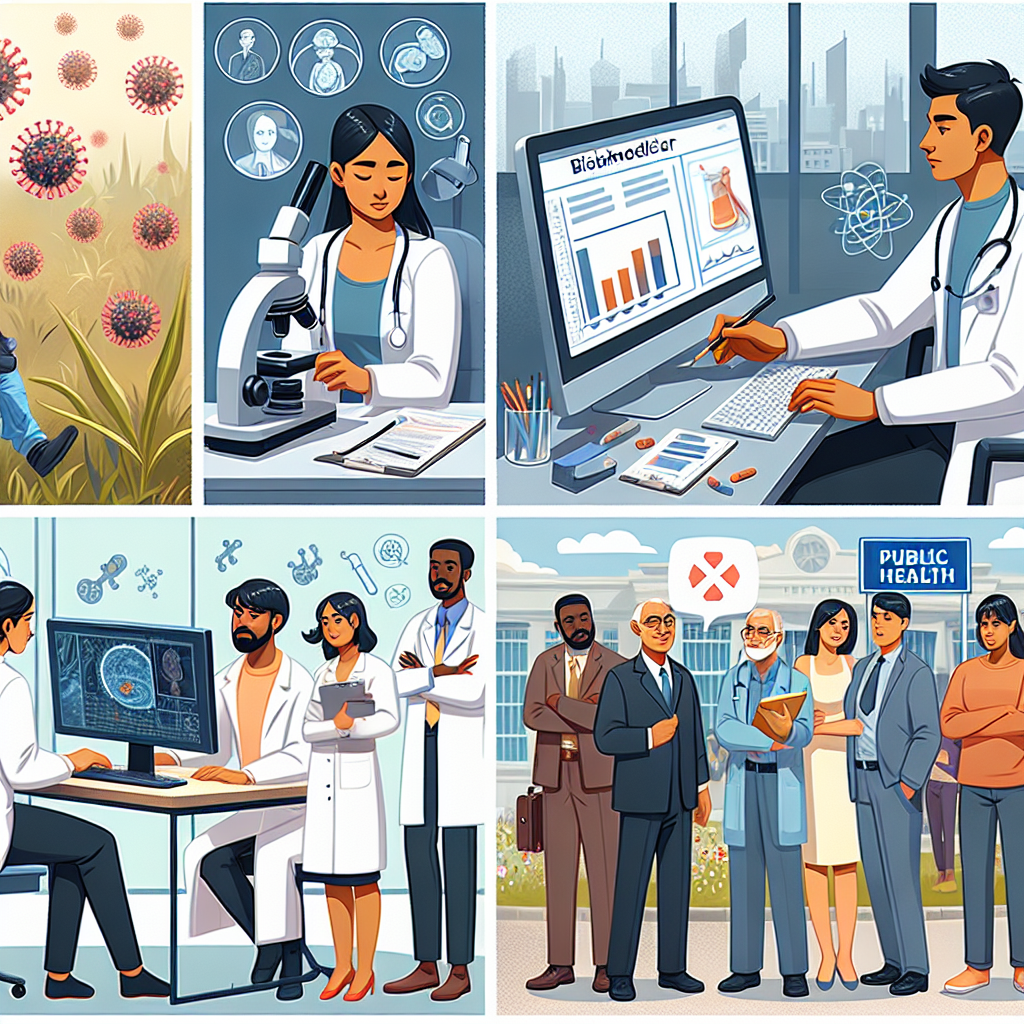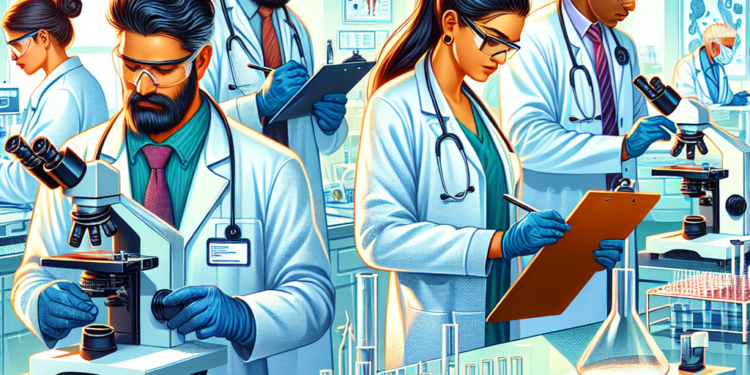Embarking on a journey with a biomedical degree opens a world of possibilities. The biomedical field merges biology and medicine, focusing on improving health and healthcare through various scientific and technological advancements. Whether you’re contemplating pursuing a biomedical degree or you’re a recent graduate, understanding the diverse career paths available is essential.
What is a Biomedical Degree?
A biomedical degree equips students with knowledge and skills in biology, chemistry, physics, and mathematics, along with specialized courses in medical sciences. This multidisciplinary approach prepares graduates to tackle complex challenges in healthcare and research.
Biomedical Degree Jobs: A World of Opportunities

Biomedical science degree jobs span across various sectors, including healthcare, research, and industry. Here are some exciting career paths you might consider:
Clinical Laboratory Technologist
Clinical laboratory technologists, also known as medical laboratory scientists, perform tests and analyze samples to aid in diagnosing diseases. They work in hospitals, diagnostic labs, and research facilities.
Key Responsibilities:
- Conducting tests on biological samples
- Analyzing results and reporting findings
- Maintaining laboratory equipment
Biomedical Researcher
Biomedical researchers play a crucial role in advancing medical knowledge. They design and conduct experiments to understand diseases, develop new treatments, and improve healthcare outcomes.
Key Responsibilities:
- Planning and conducting experiments
- Analyzing data and interpreting results
- Publishing research findings
Biomedical Engineer
Biomedical engineers combine engineering principles with medical sciences to design and create equipment, devices, and software used in healthcare. They work in industries, hospitals, and research institutions.
Key Responsibilities:
- Designing medical devices and equipment
- Testing and improving existing technologies
- Collaborating with healthcare professionals
Pharmaceutical Sales Representative
If you enjoy interacting with people and have a knack for sales, becoming a pharmaceutical sales representative might be the right fit. This role involves promoting and selling medications to healthcare professionals.
Key Responsibilities:
- Building relationships with healthcare providers
- Providing product information and demonstrations
- Meeting sales targets
Biomedical Careers in the Public Sector

Besides private industry roles, biomedical graduates can also find fulfilling careers in the public sector, contributing to public health and policy.
Public Health Officer
Public health officers work to improve community health by developing and implementing health policies, programs, and regulations. They often work for government agencies or non-profit organizations.
Key Responsibilities:
- Conducting health assessments and research
- Developing health education programs
- Implementing public health policies
Regulatory Affairs Specialist
Regulatory affairs specialists ensure that products, such as drugs and medical devices, meet all regulatory requirements before they reach the market. They work closely with government agencies and healthcare companies.
Key Responsibilities:
- Preparing and submitting regulatory documents
- Ensuring compliance with regulations
- Liaising with regulatory authorities
Academic and Teaching Careers
For those passionate about education and research, academic careers offer a chance to inspire future biomedical professionals.
University Lecturer or Professor
University lecturers and professors teach courses, conduct research, and publish scholarly articles. They guide students and contribute to advancements in biomedical sciences.
Key Responsibilities:
- Teaching undergraduate and graduate courses
- Conducting research and publishing findings
- Mentoring students
Science Communicator
Science communicators bridge the gap between scientists and the public. They create content that makes complex scientific topics accessible to a broader audience.
Key Responsibilities:
- Writing articles, blogs, and reports
- Developing educational materials and presentations
- Engaging with the public through talks and workshops
Preparing for a Career in Biomedical Sciences

To excel in biomedical careers, it’s essential to build a strong foundation in scientific knowledge and develop key skills.
Essential Skills for Biomedical Careers
- Analytical Skills: The ability to analyze complex data and draw meaningful conclusions is crucial.
- Communication Skills: Effectively conveying information to diverse audiences is key.
- Technical Skills: Proficiency in laboratory techniques and equipment is often required.
- Problem-Solving Skills: Biomedical professionals must tackle challenging problems and devise innovative solutions.
Gaining Experience and Building a Network
Internships, research projects, and networking can significantly enhance your career prospects.
- Internships: Gain hands-on experience by interning in laboratories, hospitals, or companies.
- Research Projects: Engage in research projects during your studies to develop practical skills.
- Networking: Attend conferences, join professional organizations, and connect with industry professionals.
Biomedical Degree Jobs
A biomedical degree offers a gateway to a diverse range of careers that contribute to improving human health and well-being. Whether you’re interested in research, engineering, healthcare, or public policy, the biomedical field provides numerous opportunities to make a meaningful impact. As you embark on your career journey, consider your interests, strengths, and goals to find the path that best suits you.
By exploring the different career paths and preparing yourself with the necessary skills and experience, you can position yourself for a successful and fulfilling career in biomedical sciences. Remember, the journey in biomedical science is not just about finding a job; it’s about making a difference in the world of healthcare.




